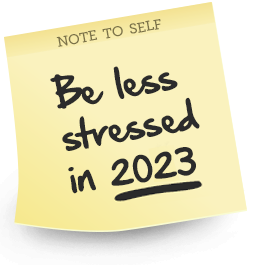What is the difference between Counselling, Psycotherapy or Therapy?
Both work with the therapeutic relationship as a powerful healing tool. The approaches overlap, however Counselling focuses more on specific issues and life events. Psychotherapy or Therapy tends to be longer term, exploring deeper psychological issues and unconscious, protective mechanisms. These are often linked to early developmental and childhood experiences which shape our view of ourselves and the way we relate as adults.
How often do I need to come?
That’s up to you! I do not work to any sort of fixed programme of counselling or with a rigid framework, as I believe in tailoring my style to your needs as clients. At our first meeting we will discuss how you would like to work together, what your objectives are and what sort of approach you would like. I normally suggest that we start off with weekly sessions. This seems to provide good continuity while also allowing you time to think about things, and make some changes in between sessions. Sometimes, however, clients want sessions more frequently to start off with – and often clients spread sessions out more as we approach an ending. Counselling is all about you, so we will meet at whatever intervals work best for you.
Can I see you for longer than an hour or have 2 sessions in a week or phone and email support?
Yes, there are times when you may feel a longer session or 2 sessions per week are helpful. We can contract for this when we meet. I can offer email support and a daily phone call should you need it for a particularly challenging period of time.
How long will counselling take?
That’s very difficult to answer, because it varies enormously. My objective as your counsellor will be to bring you, as soon as possible, to a place where you no longer feel you need to come to see me. We will keep this under review as we go, we will talk about how you feel you are progressing; whether we are adopting the right approach; what you feel you need to achieve in order to finish counselling. Ultimately it is your choice how long you continue with counselling.
How will counselling help me?
Counselling can offer you the space to explore your hopes, fears and feelings and can help you make sense of what it is that you are going through; you may feel in crisis or may have suffered a loss. You might be feeling anxious, scared or depressed. An important relationship may have ended or you may be arguing with your partner, friends or family, or you may just be feeling stuck or unhappy with the direction your life is going but it doesn't fix everything and can sometimes be a long and painful process.
What happens if I feel really emotional?
Talking to someone about how you are feeling can be very emotional, especially if you have never told anyone what you are going through. There is no right or wrong way to be when you come to counselling. There is nothing wrong with feeling strong emotions and there is nothing wrong with feeling numb. We can work together to explore these feelings in a gentle way and to try and make sense of them
Can I trust you?
Yes you most certainly can - I adhere to the British Association of Counsellors and Psychotherapist Code of Ethics and confidentiality is key. It may take time for you to feel trust and to build confidence in our relationship and this is something we can explore in our sessions.
How much will it cost?
Individuals £70 for a 50 minute session
Couples £90 for a 75 minute session
I offer concessions to counsellors in training, NHS staff, Police or people on a low income.
Supervison
Individuals £60
Group From £65 dependant on group size ( max 3)
What qualifications do you have?
FdSc In Integrative Counselling
Bachelor’s Degree (BA) in Counselling
Diploma in CBT with Heart
Diploma in Couples Counselling
Post Graduate Diploma in Supervision .
EMDR Qualified
I am a member of the British Association of Counselling and Psychotherapy, which is the main body in the UK that accredits counsellors. I participate in Continuous Professional Development (CPD) to ensure that I continue to develop and enhance my counselling skills.
Areas of recent further training have been within:
Addiction and Attachment, Domestic Violence and Abuse (DVA), Eating Disorders, Families, Gender, Relationships, Self-Harm, Shame, Sex, Sexual Identity, Transexuality and Trauma.


